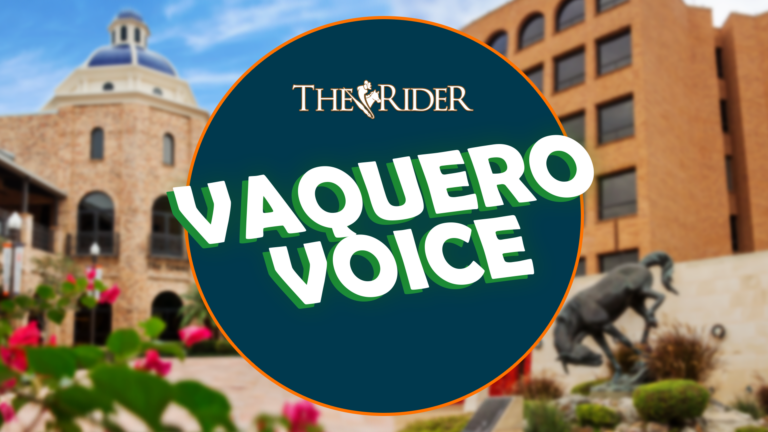UTRGV hosted the Torneo de Ortografía and Batalla de los Libros Saturday in the Education Complex on the Edinburg campus, showcasing the university’s commitment to promoting Spanish literacy among young students, according to a university representative.

Eduardo Escamilla/THE RIDER
Torneo de Ortografía, a Spanish spelling bee, has been in the region for two decades. This year also marked the inaugural Batalla de los Libros, a reading comprehension competition designed to explore new ways of engaging students with the language, according to Christian Zúñiga, director of the Center for Bilingual Studies.
“This is the first time that I … and my team hosted the Batalla de los Libros,” Zúñiga said. “It’s a reading comprehension-based competition. This is our inaugural year, and we’re kind of just exploring to see its possibilities.”

Eduardo Escamilla/THE RIDER
The event is co-sponsored by the Office of the Provost, the College of Education and P-16 Integration, the College of Liberal Arts and the Department of Spanish. It hosts competitors from second to 12th grade.
The competitions serve to underscore the importance of Spanish literacy, which according to Zúñiga carries significant individual, social and cultural value.
She said the maintenance of Spanish has two main purposes in our region: individual benefits, such as “future employment opportunities” and “future financial gain,” and the cultural significance of Spanish in the region.
Zúñiga added bilingualism supports healthy family dynamics.
“Research also shows that, when our students are bilingual, that fosters family cultivation of family values [and] relationship building between generations,” she said. “Because when our children aren’t bilingual or don’t maintain their Spanish, those [values] start to break down and deteriorate.

Eduardo Escamilla/THE RIDER
“… And so for our students, being bilingual, yes, has economic benefits, but it also [helps] developing a positive sense of self.”
The competition also hosted community organizations that provided parents with information on their programs.
Cynthia Navarro, with the Department of Communities of the Consulate General of Mexico in McAllen, handed out children’s books in Spanish.
“Being bilingual is a superpower,” Navarro said in Spanish. “We’re here distributing these books in Spanish so that kids can reconnect with their Mexican identities … and to practice their Spanish.”
She said parents can also pick up free children’s books in their office, located at 600 S. Broadway St. in McAllen.
The Rider asked Zúñiga if the Spanish language would ever be at risk or be spoken less in the region.

Eduardo Escamilla/THE RIDER
“In the U.S., by the third generation, [non-dominant languages] tend to be lost in families,” she replied, pointing to national trends.
She also added the Rio Grande Valley stands out as one of the areas where Spanish is still most prevalent.
“That said, the Valley and Miami are two areas of the nation where Spanish is still spoken the most in the country,” Zúñiga said.






